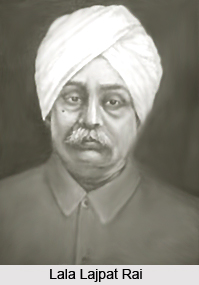 Methods of Extremist group revealed that national products in any form were given high emphasis. Economic boycott of foreign goods and use of home-made products was one of the major advocated by the. This was designed in order to encourage Indian industries and provide people with opportunities for work and employment.
Methods of Extremist group revealed that national products in any form were given high emphasis. Economic boycott of foreign goods and use of home-made products was one of the major advocated by the. This was designed in order to encourage Indian industries and provide people with opportunities for work and employment.
According to Lala Lajpat Rai the actual aim behind boycott of British goods was to cause financial loss to the British manufacturers. This would secure their sympathy thereby canceling the partition of Bengal. Economic boycott proved a powerful mace against economic exploitation by foreigners. It was also considered that the newly-rising Indian manufacturing units would freely provide funds for the Congress thereby strengthening it. This is the spiritual significance of the boycott movement.
A National Scheme of Education replaced the system of Government-controlled universities and colleges. The Extremists tried to enroll students for their movement. When the government threatened with dire consequences the national leaders advocated
National universities that had no Government control.
The method of non cooperation was preached by Tilak. The Extremists encouraged co-operative organisations. Some charitable associations were set up for rural sanitation, preventive police duties, regulation of fairs and pilgrim gatherings for providing relief fund during famines and other calamities. Cooperative movement was implemented in order to create a strong sentiment among people. It was basically training for them.
The extremist through this wanted to cover the whole country with a network of active political organisations.
All extremist leaders were united in realising the evils of foreign rule. They were together in demanding some degree of independence from colonial monopoly. Extremism was a practical strategy to meet a scrupulous situation. They also advocated democracy, constitutionalism and progress. Their aim was to highlight the negative role of the colonial rule. The Extremists were successful in giving new slogans to the Indian nationalist movement - `non-cooperation, passive resistance, mass agitation, self-reliance, and so on. They changed nationalism to `service and suffering for the nation`.
This article is a stub. You can enrich by adding more information to it. Send your Write Up to content@indianetzone.com.




















